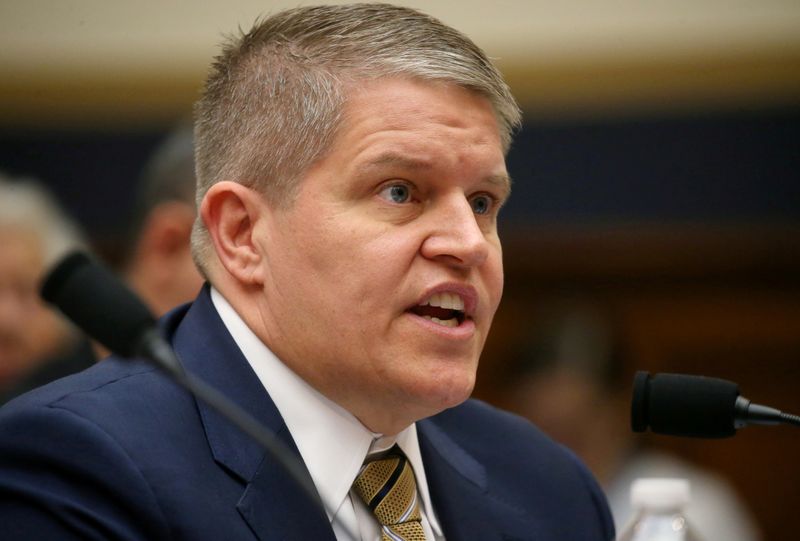By Sarah N. Lynch
WASHINGTON (Reuters) -The U.S. Senate Judiciary Committee on Thursday split along party lines over whether to advance the nomination of gun control advocate David Chipman, President Joe Biden's choice to lead the Justice Department's Bureau of Alcohol, Tobacco, Firearms and Explosives (ATF).
In the lead-up to the tie vote, Republicans vocally opposed Chipman's nomination, citing his history of advocating stronger gun regulations.
"Mr. Chipman wants to ban assault weapons," Ranking Republican Charles Grassley said on Thursday. "This nomination is like a Republican putting the NRA in charge of ATF," he said, referring to the pro-gun rights National Rifle Association.
The U.S. Senate is split evenly among Democrats and Republicans. The tie will require Senate Democrats to jump through some procedural hurdles to advance Chipman's nomination, but it is not an insurmountable roadblock.
The job of ATF director is so politically fraught that the Senate has only confirmed one ATF director nominee in the last 15 years. The rest of the ATF's leaders served in an acting capacity, making it harder to put their stamp on lasting and meaningful policy.
"This nomination is a test. Can we put someone in charge of the ATF?" Senate Judiciary Committee Chairman Dick Durbin said on Thursday.
Senator Dianne Feinstein, meanwhile, called Chipman the "leader that ATF needs," citing concerns about a rising tide of gun violence in the United States.
Chipman previously worked at the ATF for nearly 25 years, but currently serves as a policy advisor for Giffords, a gun control advocacy group founded by former U.S. Representative Gabrielle Giffords and her husband, Senator Mark Kelly, after a gunman shot her in 2011.
The ATF will play a vital role in Biden's pledge to crack down on a tide of rising violent crime and shootings.

The administration is looking to regulate self-assembled "ghost guns" and stabilizing braces that can be attached to pistols.
On Wednesday, Attorney General Merrick Garland pledged that the ATF will ramp up efforts to revoke licenses of gun dealers who fail to conduct background checks or assist law enforcement with requests to trace guns used in crimes; who falsify records or sell guns to people prohibited from owning them, or refuse to submit to the ATF's compliance inspections.